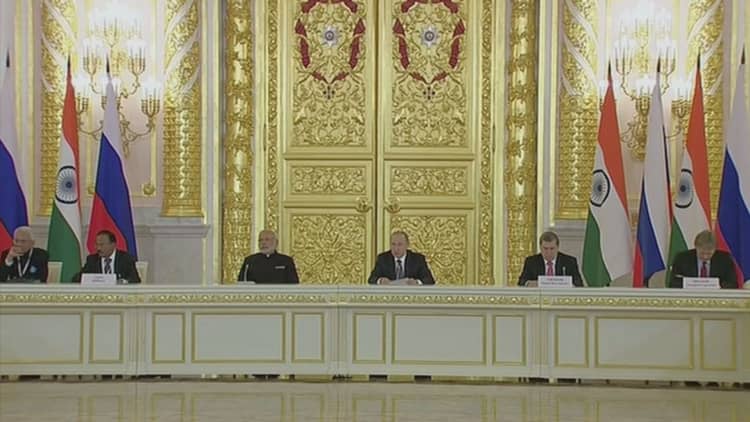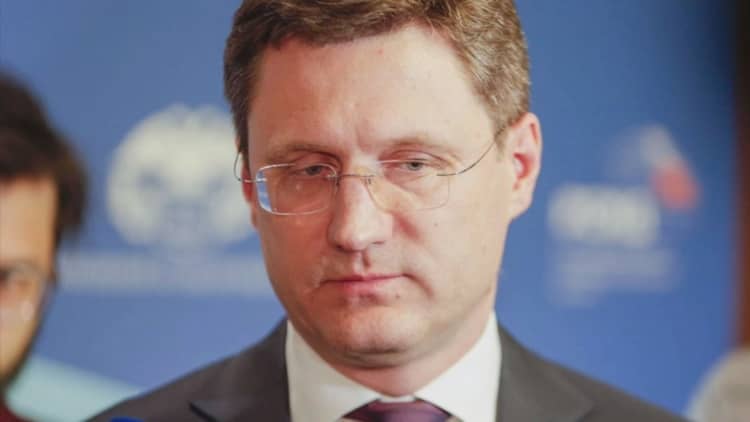
Russia's President Vladimir Putin approved plans on Monday to raise domestic tax rates on gas and diesel by nearly 25 percent, in the latest move aimed at reining in the government's ballooning deficit.
The levy is expected to raise 89.3 billion rubles ($1.1 billion) this year, according to news agency Interfax, helping boost income at a time when Russia's resource-dependent economy is being battered by low oil prices and international sanctions.
This measure won't bring the Kremlin close to balancing the budget, but is meant to at least get the deficit under control, Liza Ermolenko, an emerging markets economist at Capital Economics told CNBC via telephone on Tuesday.
She expects the 2016 deficit to run as high as 4 percent, "far worse" than its 2.6 percent budget shortfall in 2015.
Russia's finance minister last month told Russian media that the budget would fall short by over 3 trillion rubles ($39.5 billion) thanks to a further collapse in oil prices. The ministry originally calculated the 2016 budget based on a Urals oil price of $50 per barrel, a benchmark which typically trades within $3 to $4 of Brent crude.
Brent crude prices have fallen by around 70 percent since mid-June in 2014 to trade near $35 a barrel as of midday London trade on Monday.
The levy comes amid reports that the government plans to again slash spending by 10 percent — or 700 billion rubles ($9.2 billion) — and freeze pension contributions for the third-year running.
Taxes on Russia's standard class 5 gasoline will increase from 7,530 rubles per ton to 10,130 rubles per ton, according to Interfax, while the levy on diesel fuel will rise from 4,150 rubles to 5,293 rubles.

While the headline figure may seem extreme, Ermolenko said the tax isn't likely to spark too much outrage.
"The measure is relatively small and doesn't look too obvious to consumers, especially when inflation is high anyway," she said, explaining that the excise duty increase is expected to add 0.2 percent to the annual inflation rate this year.
The consumer price index was last tracked at 9.8 percent in January, marking the first drop below double-digit rate in months.
In total, the tax is expected to increase gas prices by 6.5 to 7 percent, according to a government estimate reported by Interfax. Accounting for value added tax at 18 percent, it will raise gas prices by 2.36 rubles ($0.03) per liter.
However, Ermolenko said this isn't likely to be the government's last belt-tightening measure.
"This only serves as a reminder that while oil funds mean there is some space for Russia to run budget deficits, this space is limited and fiscal policy will need to be tightened over the coming months and quarters," Ermolenko explained.
The excise duty will be implemented April 1.


